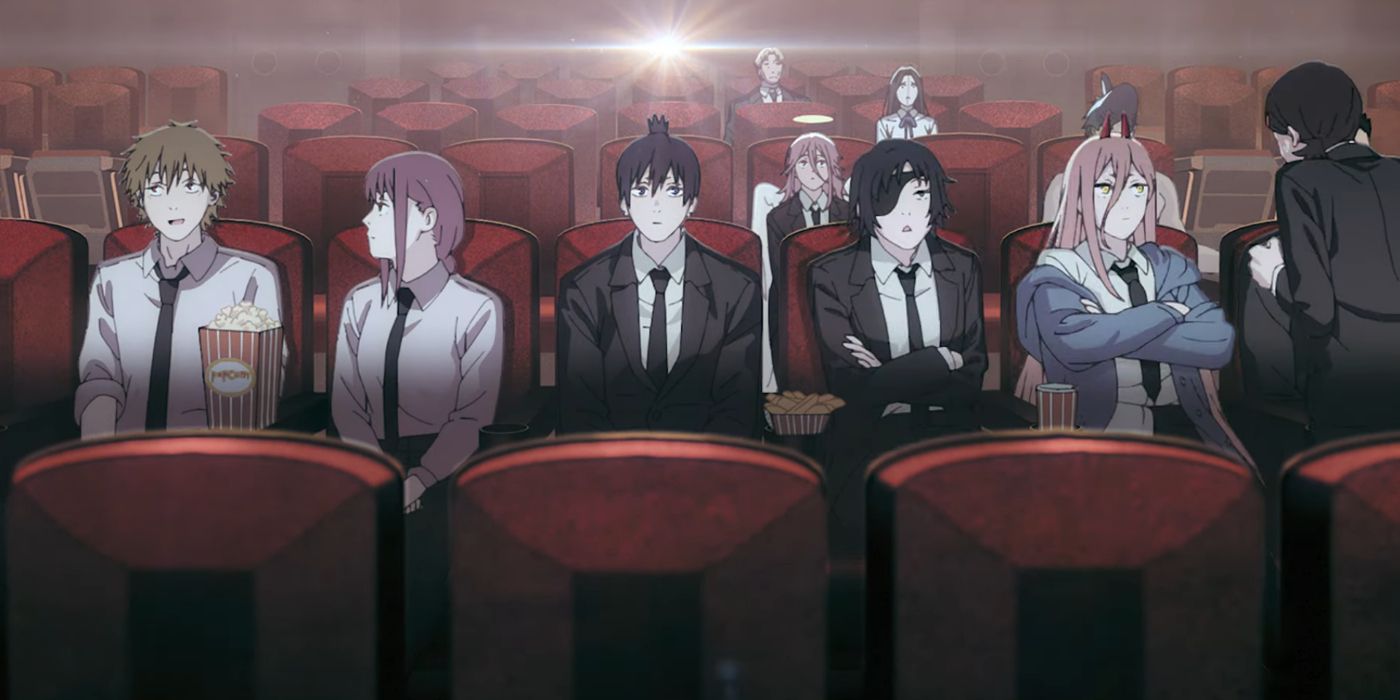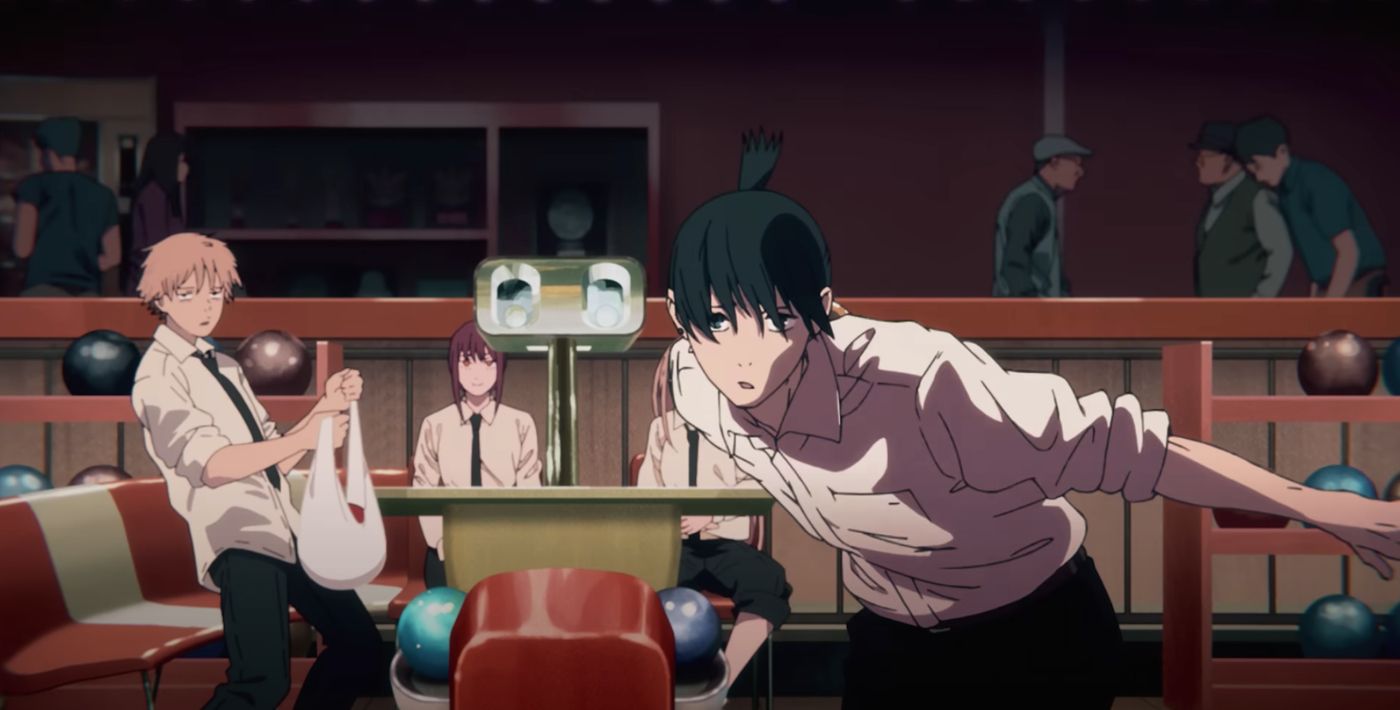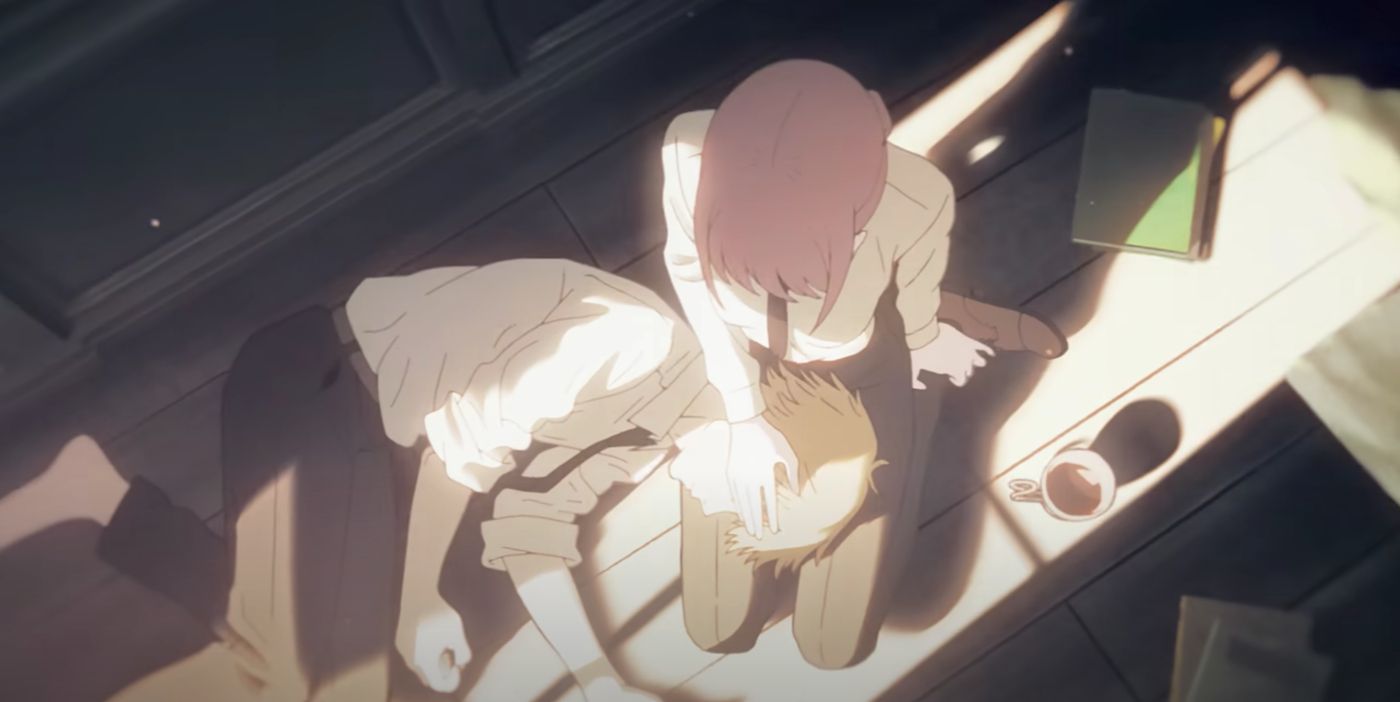If you looked outside your window today, you may have noticed the sun shining a little brighter than usual. You might have noticed that the people that have passed you by are acting a little more cheerful as well, giving you and your outlook on the world in a more positive light. This isn’t due to some sudden change in the autumn-time, or even from a sudden increase in the marketing budget for Smile. Dear reader, it is Chainsaw Man week, the long-awaited time of year when the anime adaptation of the highly-regarded Manga by Tatsuki Fujimoto slices its way into our television sets, and the world is simply doing a little better because of it. The premiere episode of the show’s 12-part first season has unsurprisingly been met with a ton of praise, and given the stacked talent that’s involved via Studio MAPPA, that doesn’t come as much of a shock. But with every initial impression of the start of an anime comes with the impression of its opening, and without giving much away, the intro to Chainsaw Man is a perfect encapsulation of what the show is, what it isn’t, and why Fujimoto-san’s bloody world of love and chainsaws is worth giving your attention.
Oftentimes in the anime industry, it’s a common occurrence that the animation for the opening of a show is deemed more important than the final animation that lies in the show itself. The OP is after all the first attempt to grab new viewers into tuning in for more; alongside the OP song that accompanies the visuals, their goal is to coexist and tell a brisk story that captures the mood and tone of the series without revealing too much about the actual story. The OP for Chainsaw Man was directed by Shingo Yamashita, one of the best animation directors in the game who was previously known for his OP work in Naruto: Shippuden and most recently Jujutsu Kaisen, and the song for the OP is “KICK BACK” by renowned musician Kenshi Yonezu. While the language barrier may be a bit difficult for audiences to interpret the song’s meaning at first, the lyrics actually provide a clever level of subtext that’s both fitting for the OP and the themes surrounding the series’ main character, Denji.
There’s an unexpected rush of excitement that arrives with the opening animation of Denji revving up his motored persona being welcomed by the theme’s motif of The Coolest Bassline Ever Heard, as Denji and his team of devil-hunters (Power, Aki, and their boss Makima) walk across the streets Reservoir Dogs-style. It’s as if the creatives are giving you one final warning that what you’re about to see is not your daddy’s typical anime. The OP quickly follows that film homage with a barrage of other film references, with No Country for Old Man, Jacob’s Ladder, and even Constantine making its presence felt as the song’s opening lyrics kick in, which roughly translate to “striving, future, a beautiful star” (kudos to u/asilvertintedrose on Reddit for the round-up).
As fun as it is to see these references just because they exist, their inclusion actually serves as a cool meta-textual foreshadowing for the series going forward, while also being a cheeky nod to Fujimoto-san’s love for film in his manga. Take the shot of Aki pulling out of the driveway with Denji, lifted straight out of Once Upon a Time… in Hollywood. Aki is Denji’s partner, assigned by Makima after she encountered Denji in his Chainsaw Devil form and offered him a life of servitude under the government. Those who have already seen the first episode know that Denji is a protagonist who, while good-spirited, has a hard time escaping from the trappings of his poor indebted life. He has to sell organs to pay his late father’s yakuza debts, and most of the decisions he makes usually end up leaving him in a worse spot (or even dead in some cases). He simply asks for a better life with nourishment and babes (a living the song’s lyrics allude to in both good and bad ways), and like the character he’s supposed to be playing in that scene (Rick Dalton), he really doesn’t know what to do after that, making Aki (Cliff Booth) Denji’s caretaker as he adjusts to his new lease on life.
There are other connections you can make as well with the other homages (such as Captain Kishibe’s righteousness subbing in for Pulp Fiction’s Jules Winnfield, and the constant confusion that comes with the other public safety Devil Hunters à la Attack of the Killer Tomatoes), but those are best to be saved for later once the story begins to reveal more about its world. Chainsaw Man is a manga with a lot of emotions that usually arrive at the most unexpected times, and Yamashita-san’s decision to evoke that by taking certain shots from films to recontextualize them for the show’s character dynamics is a very smart one.
It’s only more fitting that this meta-narrative would continue in the OP as it cuts to a shot of the main cast watching these moments in a theater, quickly showcasing just some quirks from crucial characters like Power and Makima before adding in another film homage with The Big Lebowski to tease the offbeat but communal relationships between the crew. We then see quick shots of future enemies before the song’s bridge brings us to a seemingly sweet scene between Denji and Makima, as she pets his head while he rests. Could this be a tease of blossoming love to come, where Denji can finally have the peace that he’s been searching for? Or, as we see from the pixilated close-ups of him being walked like a dog from earlier and this strange-looking slug that Makima attempts to feed him, could it mean something far more sinister? You may already know where this is going, but for the majority of people who are still perplexed by the concept of a man who can kill demons with giant blades on his face and hands (sometimes the legs if he feels lucky), the OP does a good job in managing those expectations just enough for one to keep watching for answers. The same can even be said for the OP’s upbeat song and energy, which juxtaposes the expectation that this series will not suddenly become really bleak and sad at times (spoiler: it does in spades).
The music and visuals then kick into high speed as we see Denji, Power, and Aki take on some circle shaped devil. The lyrics during this portion of the OP translate to “Bury me in happiness. Until I rest in peace, we all go forward together. The good place called hell that I saw that day, let's spread love thеre.” The meaning of the lyrics could be lost from its original interpretation, but from just piecing together these words, they lay out an interesting dichotomy of wanting comfort despite where you may be. Spreading love in hell definitely sounds like an oxymoron, but for a character like Denji it seems like a fitting viewpoint; he’s a boy that wants to escape from his past, regardless of where the future will lead him physically and mentally. He’s similar to Shinji Ikari from Neon Genesis Evangelion in that way, which is possibly the reason why there’s a reference to it in this part of the sequence. You can also see the letters C, S, and M form from Denji’s crash landings during the action. I don’t know if there’s more for me to explore there. I just think that’s neat.
The fluidity and dynamism of the characters in action continue on (giant golden ball from Fight Club and all) as the theme music quickly builds to a roaring coda, before being followed by a charming moment with that little rascal Denji attempting to crack open an egg unsuccessfully. The rest of the OP from this point on acts as a bookend to the beginning, where we see even more explosive references to Fujimoto-san’s other work, some cute shots of Denji’s devil dog Pochita, and a peculiar allusion to The Trouble with Perspective illustration that hints at a dark truth that our heroes may not realize. The OP ends with one last fun moment, with Denji and Power dancing following the battle as an annoyed Aki literally cuts the scene to black with his abilities, an appropriate end to a truly unique work of animation.
I’m sure there’s more that can be said about the symbolism behind the OP and what other interpretations can be gained from it, but part of the fun with an OP like Chainsaw Man’s is that with time, there will be more to be appreciated from it, especially if it has any variants that tie into specific moments being adapted. The effort and care that Yamashita, Yonezu, and everyone else who contributed to this work shows vividly, and should be given their flowers and then some. The quality of the remaining episodes could change in an instant (here’s hoping it doesn’t), but that doesn’t lessen the crew’s result in creating an opening that is, without a shred of doubt, one of the best to ever be made. It rips, it tears, and for storytellers everywhere, we’re all the better for it.



